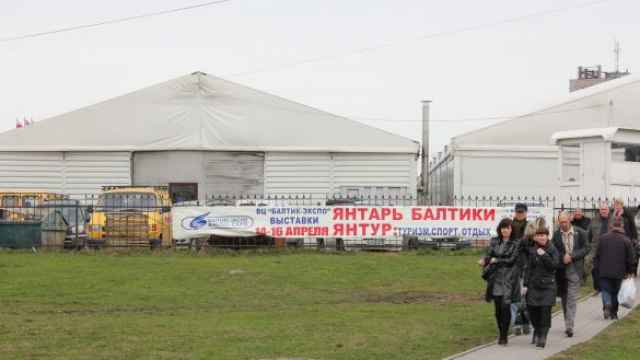KALININGRAD — Drawing tourists to the city of Kaliningrad is getting serious attention from the region’s government, and the history of the area is helping.
Founded in 1255, the town was part of Prussia and then Germany until the Soviet Union occupied the region and resettled it with Russians after World War II.
Kaliningrad hasn’t retained much of its heritage as East Prussia. After being extensively bombed during the war, the city was rebuilt with many features of Soviet urban planning and was closed to foreigners because of its strategic importance.
Yet, the region’s leisure industry is almost entirely German nostalgia tourism, said Anna Mitrofanova, a tourism expert at Kaliningrad’s Immanuel Kant Baltic Federal University. About 70 percent of foreign visitors come from Germany, and this figure will hold as young relatives replace the old-timers who remember pre-Soviet Kaliningrad, she said.
According to data provided by Mitrofanova, 420,000 tourists visited Kaliningrad in 2010, of which about 30 percent, or 126,000 people, were non-Russians. By comparison, more than 1.3 million foreigners visited neighboring Lithuania in 2009, according to Lithuania’s Department of Statistics.
Mitrofanova said Kaliningrad lags behind Baltic and East European countries in tourists partly because of its less-developed hospitality industry.
“Our citizens go to our neighbors more than our neighbors come to us,” she explained. “Our neighbors have a higher quality of service … for the same price.”
Kaliningrad’s regional government is implementing a number of measures to raise tourist numbers, such as increasing the number of border crossing points and setting up a “green corridor” for tourists at the crossings, said Yelena Kropinova, director of the Kaliningrad Region Tourism Agency.
A Message from The Moscow Times:
Dear readers,
We are facing unprecedented challenges. Russia's Prosecutor General's Office has designated The Moscow Times as an "undesirable" organization, criminalizing our work and putting our staff at risk of prosecution. This follows our earlier unjust labeling as a "foreign agent."
These actions are direct attempts to silence independent journalism in Russia. The authorities claim our work "discredits the decisions of the Russian leadership." We see things differently: we strive to provide accurate, unbiased reporting on Russia.
We, the journalists of The Moscow Times, refuse to be silenced. But to continue our work, we need your help.
Your support, no matter how small, makes a world of difference. If you can, please support us monthly starting from just $2. It's quick to set up, and every contribution makes a significant impact.
By supporting The Moscow Times, you're defending open, independent journalism in the face of repression. Thank you for standing with us.
Remind me later.





